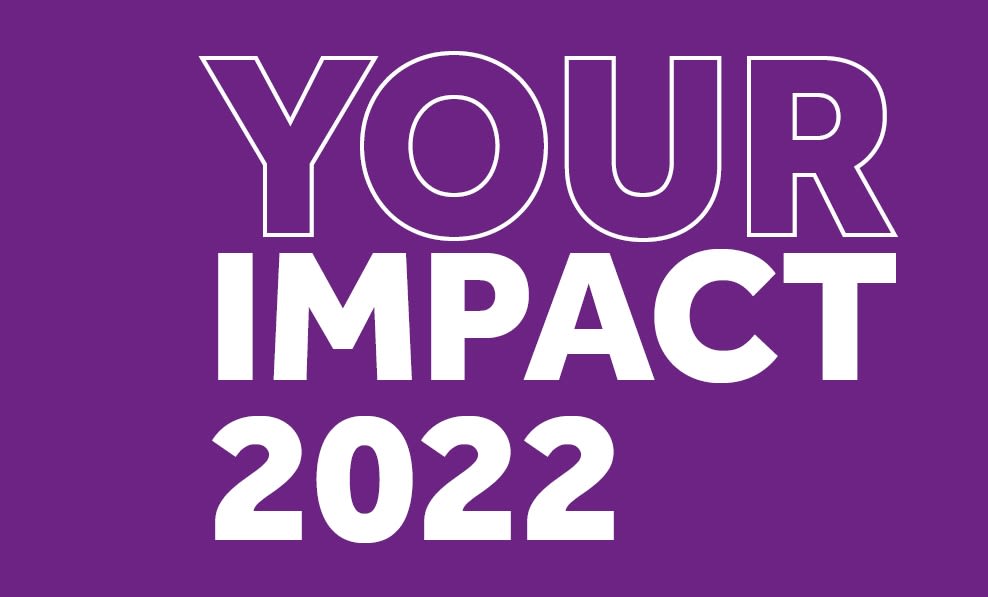
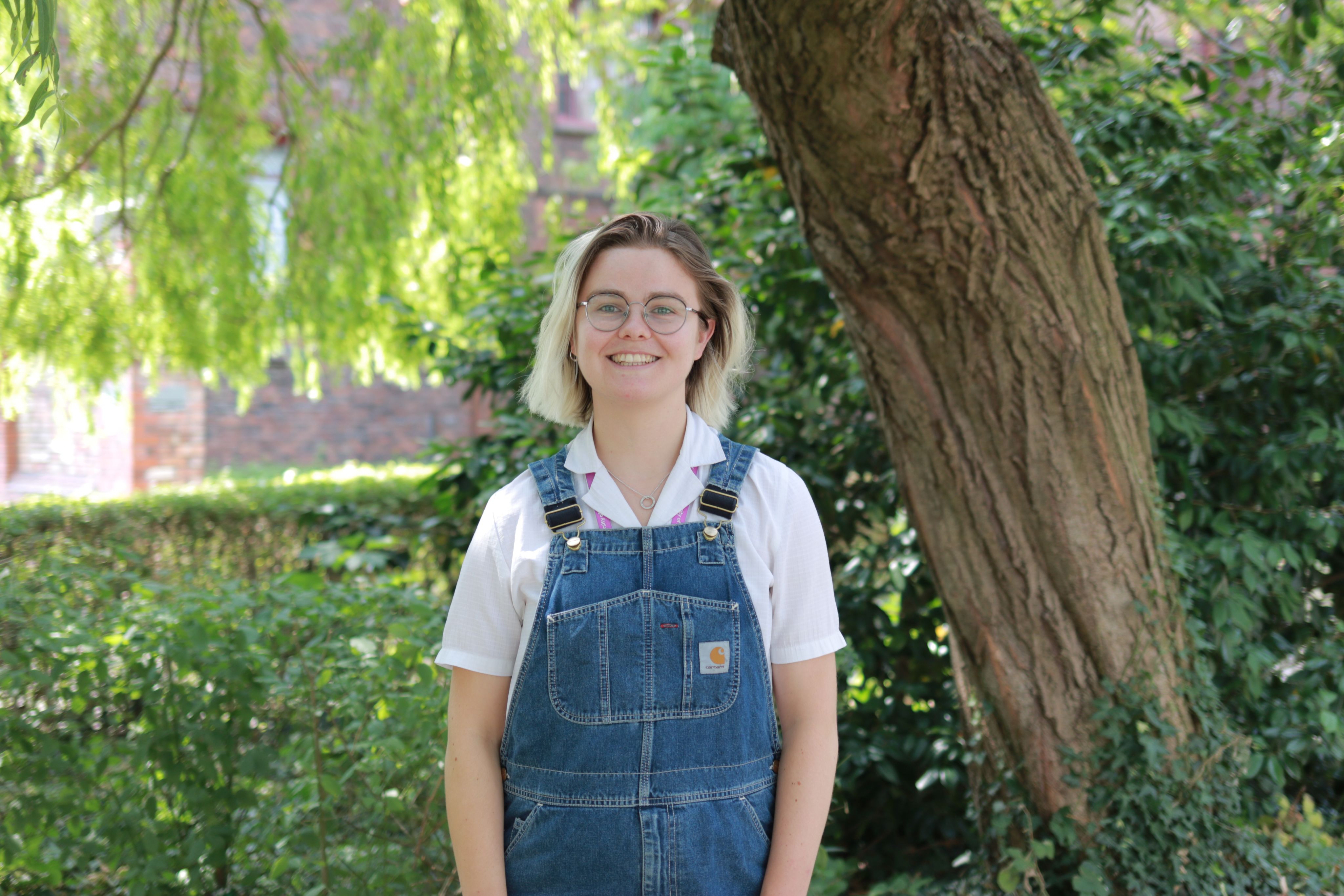
Welcome to Your Impact Online
This year's edition of Your Impact Online contains features and stories which highlight the way your support is making a difference all across our University.
To explore the magazine and additional video content, scroll down on this page or explore using the navigation bar above.
Firstly, we hope you will enjoy the welcome message below from our Director of Development and Alumni Relations, Kate Cambden (née White).
Supporting our students
One in four Manchester students come from a low-income background. Thanks to you, disadvantaged students have the support they need to pursue further education and reach their full potential.
Once again, our donor community came together this year to show their support for our students. Thanks to you, a new generation of talented and deserving students are looking forward to starting their studies with us this September.
Your donations provide much needed financial support which can be a lifeline to those who are struggling. With the cost of living rising, you’re helping to ease financial worries and give students the freedom to make the most of their time at university – regardless of their background.
Find out what a day at university is like for some of our scholarship recipients, by watching the video below.
Your favourite Manchester moments...
Donations to our most recent student support appeal are helping students to make lifelong memories here at Manchester. We have loved reading about the favourite moments many of you chose to share along with your gifts.


Improving access to higher education
This year, you helped support nearly 900 students through the Undergraduate Access Scholarship. This scholarship provides students with the financial security to make the most of their time at university, without concerns.
Iqra enrolled at Manchester in September 2020 and credits her scholarship with helping her to become more independent and make the most of her university experience.
Iqra Malik, BSc (Hons) Speech and Language Therapy
“The past academic year has been really exciting for me; being on campus and having in-person lectures and seminars has really helped me to feel more settled as a student. I was also able to complete a placement this year, which was one of the best experiences I have had at university so far. I learnt the practical skills of being a speech and language therapist, including how to communicate with patients, and could see what a day in the job is really like.
I was also really proud this year to get a job at the library, where I worked on projects that make university more accessible for students from minority backgrounds. It’s important to me that students with similar experiences to myself are supported, as we all deserve to know that we belong here regardless of our circumstances.
Overall, receiving an Undergraduate Access Scholarship made obstacles like moving out of home easier to overcome, and I am really grateful to have this financial freedom.
I would sincerely like to thank the donors who made it possible for me to receive this support; it means a lot to know there are people willing to invest in my education. I feel immensely privileged and thankful for your support.”
You can watch a special video message recorded by Iqra below.

A helping hand
Many young people struggle to cover essential day-to-day living costs while studying at university, including utility bills, accommodation, course equipment and travel.
In recent years we have seen increased numbers of students seeking help due to the disruption caused by COVID-19, and requests for emergency grants are now three times higher than before the pandemic. Your generous donations towards hardship support are meeting this growing need and providing a lifeline to the students who need it most.
In the 2021/22 academic year...
389 students were supported with donor funded hardship grants.
Students received an average grant of £581.
Just over £225,000 was distributed to students in need.
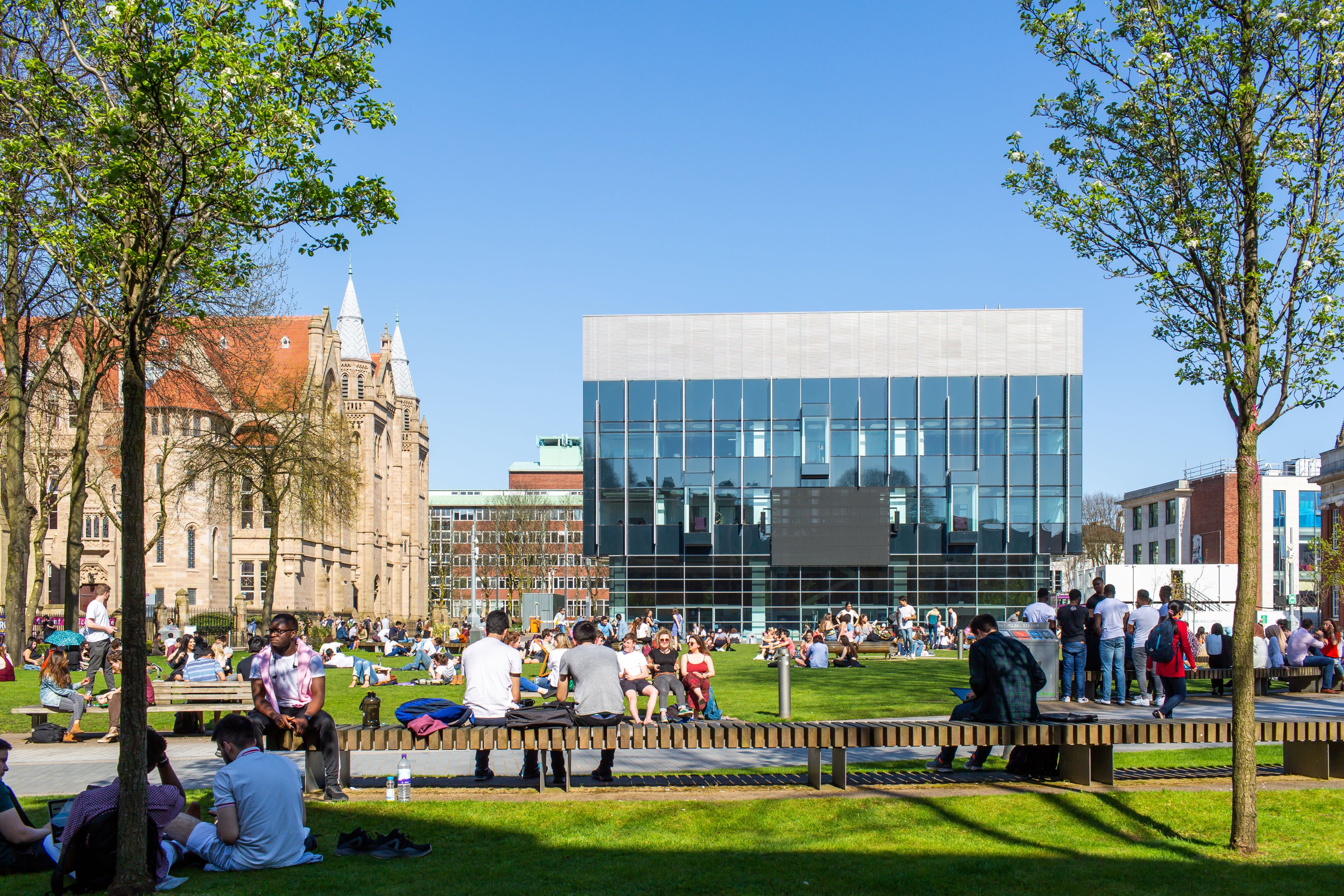
Global impact
With the help of donors like you, over 200 students have received an Equity and Merit Scholarship to date, enabling them to study here at Manchester and develop skills that will benefit their communities.
This year we are pleased to share the experience of Theoneste, who is one of the latest scholars to join us here at the University.
Theoneste Abijuru, MSc Structural Engineering
“In September 2021, I started a master’s degree in Structural Engineering with the goal to become a leader in the development of world-class projects in my home country. Rwanda is one of Africa’s fastest growing countries, with increasingly complex infrastructure being developed. I work as an Estate Development Engineer, which requires me to make technical decisions regarding project design and feasibility.
So far, I have studied several useful course units including one on Earthquake Engineering. Recently there was a significant earthquake in Rwanda. Buildings were damaged and people were injured, while others were displaced. Now that I have learnt about earthquake resistant structures, I will be considering seismic safety designs in my future projects.
On top of everything I have gained through this opportunity, I will cherish the networks I have generated with my classmates and course leaders the most. We are all from different backgrounds and this has helped us to complete projects easily by combining our knowledge.
Without this scholarship I would not have made it to The University of Manchester. My scholarship is helping me to achieve a good education from a top-tier university, which has always been my dream. What’s more, it has helped me to afford living in Manchester and meant I could purchase all the resources I need to learn effectively.
I now feel ready to inspire my team back home so we can develop projects in line with world-class construction practices. I am thankful to the donors who have made possible my dream to significantly improve infrastructure development in my home country.”

Fuelling the future of stroke research
Last year, thousands of alumni and friends came together to support Manchester’s stroke research by funding a new postgraduate researcher. Now, Manchester neuroscientists are closer than ever to finding a breakthrough treatment for stroke.
Mary Newland was appointed to this new position within the team last September, and has since helped to increase research capacity, aiding the search into new treatments for haemorrhagic stroke. Professor of Neuroscience and Co-Director of the Geoffrey Jefferson Brain Research Centre, Stuart Allan explains, “Finding a new drug for haemorrhagic stroke would be a major breakthrough and change people’s lives. What excites me most is that we now have a number of researchers in the stroke group in Manchester working on brain haemorrhage, so we can make much more rapid progress in trying to find this much-needed new treatment.”
“Mary’s doing fantastically and is a brilliant addition to the team. As part of her PhD, she’s been reviewing work that’s already been done on inflammation and stroke, and has just completed a big study: testing an anti-inflammatory treatment for brain haemorrhage.”
PhD students like Mary are an important piece of the research puzzle as they are able to dedicate much of their time to working in the lab, playing a crucial role in new discoveries.
“Early career researchers like Mary are the lifeblood of science. To continue with the research we do, we need to continually develop new talent, and this starts with PhD students.”
By supporting talented early-career researchers like Mary, you’re shaping the future of research here at Manchester, while also improving outcomes for stroke patients for generations to come.
You can read more about the progress of stroke research at Manchester in our recent blog post, Changing the future of brain disease.
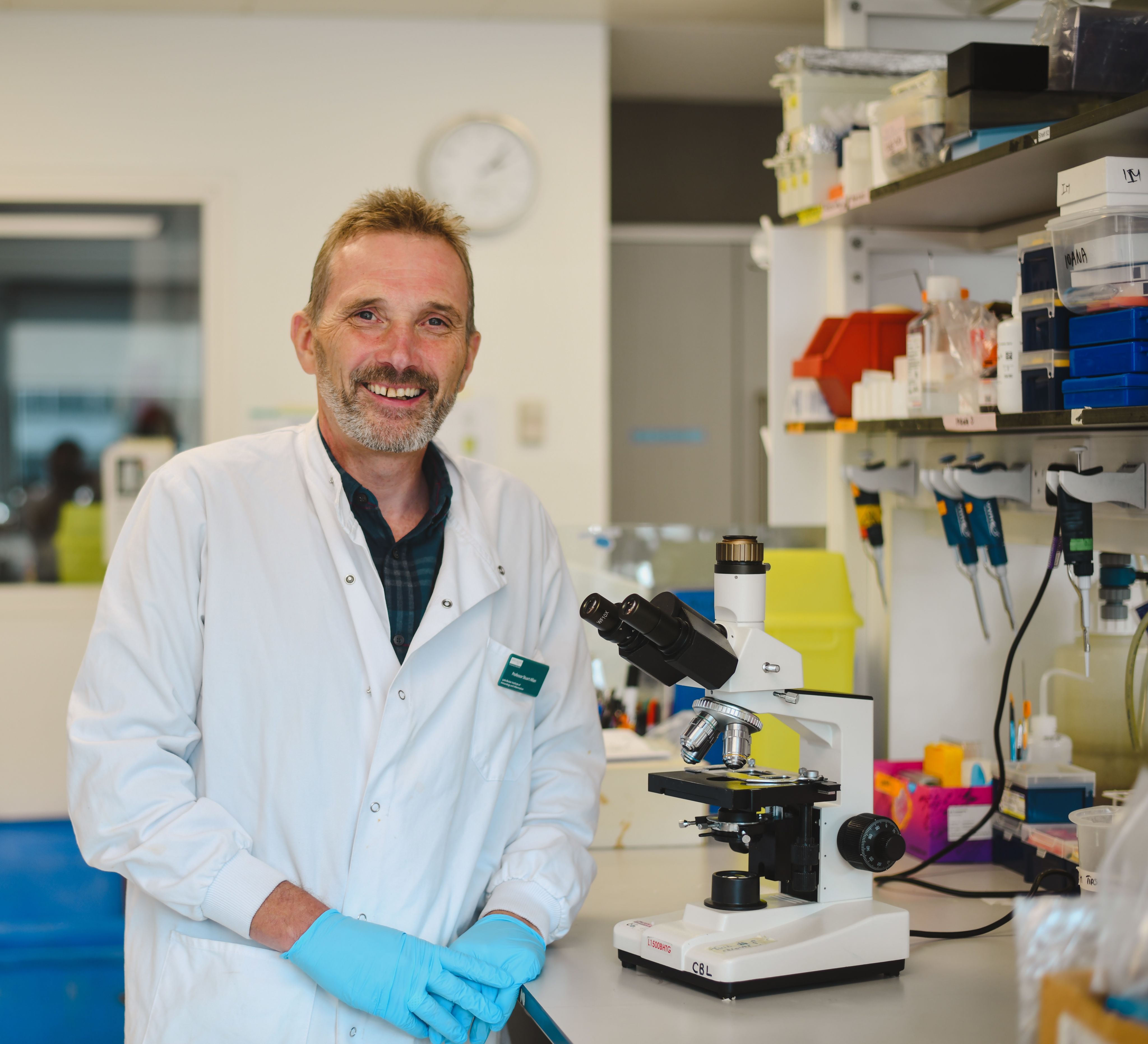
Mary Newland, PhD in neuroscience
“I have loved my time so far as a PhD student within the neuroscience research team. I have had the opportunity to learn new techniques as well as collaborate with many incredible scientists.
The most challenging, but also the most rewarding, aspect of my PhD so far has been building my confidence to bring my own ideas to the project. In the beginning, self-directed research felt almost unreachable. But as I gained knowledge and independence, I have been able to direct my own project in the lab with the help of my amazing supervisory team.
Making a meaningful difference to patients’ lives initially drew me to this project and continues to motivate me every day. My research is currently based around the anti-inflammatory drug Anakinra, which is a promising new treatment for haemorrhagic stroke and is currently in phase two clinical trials. I am looking at the changes that occur in the brain after brain haemorrhage to find the most beneficial time to administer this drug.
Outside of the lab, I have had the opportunity to be involved with and organise public engagement events in Manchester and beyond. These events encourage people to think actively about brain health and inspire the future generation of scientists.
Again, I want to say a massive thank you to everyone who donated to this special appeal. Your generosity continues to fund vital research into identifying new life-changing treatments for haemorrhagic stroke, and I am even more grateful now that I have seen the true impact of this research.”
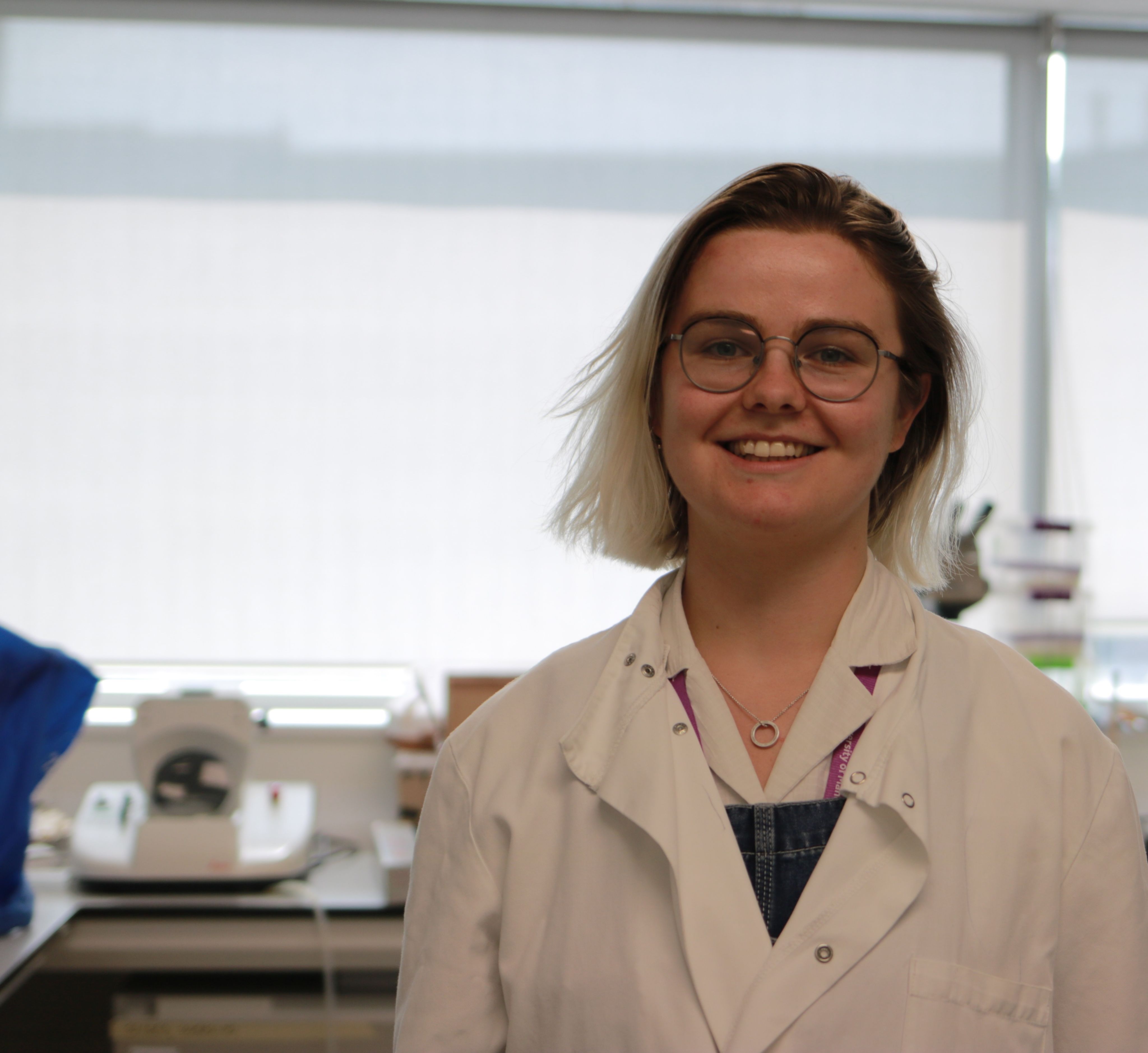
PhD research stars
By supporting PhD students through scholarships and prizes, you are helping the next generation of talented researchers go on to have exceptional careers.
Below we have showcased just two of our talented PhD graduates, highlighting their successes and the progress they have made in their careers so far.
Sebastian Leaper, PhD in Nanoscience

While completing his PhD at The University of Manchester, Sebastian received the prestigious Eli and Britt Harari Graphene Enterprise Award, a £50,000 grant to encourage new ventures in graphene development.
Since then, Sebastian has become the CEO of Watercycle Technologies, which has recently secured funding through Aer Ventures to commercialise its membrane technology. This new innovative technology will aim to support the extraction of lithium and other minerals from water, which will aid the recovery of these valuable raw materials from battery recycling and reduce the environmental impact of primary lithium production.
Anya Golder, PhD in Cancer Biology

After completing a PhD in 2021, Anya gained initial experience as a research scientist in the Drug Discovery Unit at the Cancer Research UK Manchester Institute. Since then, she has started an exciting new role as a Communication Consultant at a presentation design agency.
"My role involves meeting with clients to understand their complex ideas, and transforming these into beautiful presentations that engage audiences. This career path has allowed me to utilise the communication, project management and analytical skills I developed during my PhD."

A lasting legacy
We are incredibly grateful to receive gifts in Wills from those who wish to make a lasting impact here at the University. These legacy gifts support the causes that mean the most to you and enable your generosity to continue making a difference well into the future.
One such gift that will provide long-term support for Manchester students was made by the late Dr Alan Maxwell, who passed away in 2021.
A noted solar physicist, Dr Maxwell undertook his PhD at the University, graduating in 1953. While studying at Jodrell Bank Observatory, he was supervised by eminent radio astronomer Sir Bernard Lovell. After his time studying and teaching in Manchester, Dr Maxwell spent most of his professional career in the USA. He established and managed a radio astronomy station in Fort Davis, Texas. He also taught young scientists at Harvard University, Massachusetts, including a future Nobel Prize winner. A philanthropist in his lifetime, he gave generously to humanitarian causes, music and education.
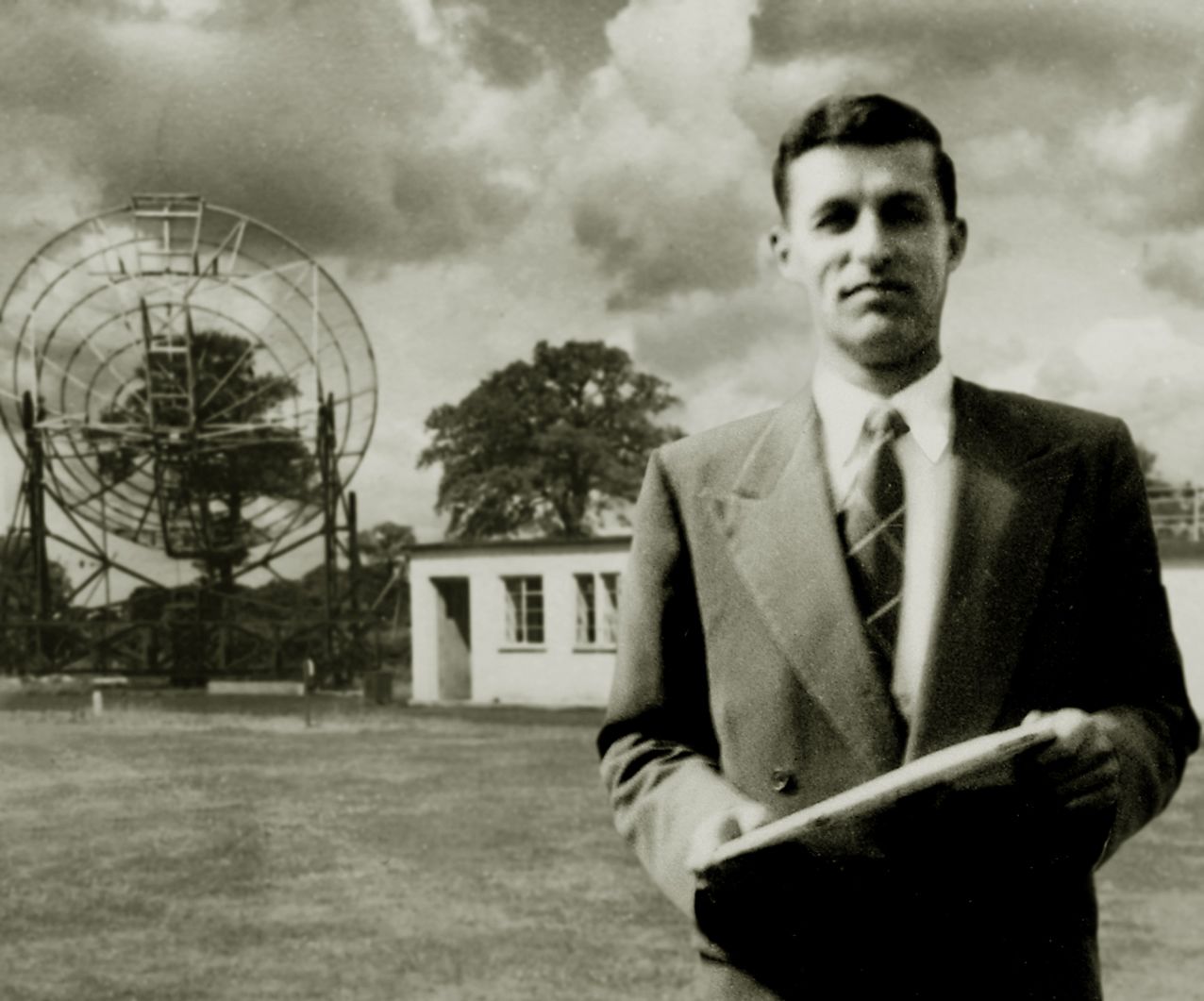
Dr Maxwell committed his support to The University of Manchester in 2015, through a pledge to the North American Foundation for The University of Manchester (NAFUM). His motivation was to support students from disadvantaged backgrounds through scholarships and hardship funding. His generosity will help to change so many lives. Dr Maxwell had a long history with the University. By making a gift in his Will, he’s now having a positive impact on the future of many talented students.
To learn more about including a gift in your Will and our free Will-writing service, visit manchester.ac.uk/willgift.
Photographs courtesy of the Maxwell Family Archive and Susan Maxwell Skinner.


The Paterson building which stood alongside The Christie cancer hospital, was home to over 300 cancer research staff and scientists but was sadly destroyed by fire in 2017. Thanks to your support of our Re-write Cancer campaign, a world-leading new cancer research centre will soon stand in its place.
The brand new building will contain five floors of collaborative working space for researchers, as well as ten state-of-the-art laboratories. At its heart will also sit a newly expanded Centre for Cancer Biomarkers, a cutting-edge research method into the early detection of cancer. Construction on the project has progressed rapidly over the last six months, with completion on track for December 2022.

Artist impression
Artist impression
Thanks to you, we are now closer than ever to our goal of re-writing the future of cancer in Manchester. However, there is still time to support the campaign to ensure this landmark project can come to life.
If you would like to find out more about this project or how you can support its completion, please visit manchester.ac.uk/cancerappeal



Your University, your support
Those who choose to make a donation to our work here at Manchester, do so for many reasons. We are pleased to share the story of one of our valued supporters and their motivations for giving.
Mark Adlestone OBE DL, Chairman of Beaverbrooks the Jewellers and Trustee at the Beaverbrooks Charitable Trust
“Beaverbrooks the Jewellers is a family business started in 1919 by my grandfather and his two brothers. I am the third generation to work for the business and one of my three daughters recently joined our company four years ago.
Although we are very much a North West based company, I feel very strongly about supporting communities across the UK through philanthropy. Long ago my family first came to England fleeing persecution and I want to ensure we are giving back to the country that provided refuge and opportunity.
As a company we donate 20% of our retained profits to charity each year. We also build a culture of giving amongst our employees and encourage them to donate to causes of their choice through payroll giving and match funding. We also make strategic gifts as part of our ongoing commitment to support communities through the Beaverbrooks Charitable Trust. This includes a recent donation towards the Re-write Cancer campaign.
I have long been aware of the University and its role at the forefront of higher education and research worldwide. We were drawn to the Re-write Cancer campaign due the University’s involvement in the partnership with Cancer Research UK and The Christie. The new facility is one of the biggest investments in health research that has ever taken place in the city, and we are excited to be part of a project that will put Manchester and the North West further on the map.
The collaborative nature of the project is also very important to us to ensure that the interdisciplinary work done on areas such as biomarkers, can translate into other areas of health research. This project will be incredibly important to the city, the region, and the future of health research on a global scale. We are very proud to be a part of it. For anyone who has yet to support, I would encourage you to do so. It is your University, your city, your region, and the research that will take place here may one day help someone you know.”

A museum for the future
Currently undergoing a £15 million transformation project, Manchester Museum is due to open its doors once again to visitors in February 2023.
Aptly titled hello future, the project will see the museum transformed into a forward-thinking collaborative space, including never-before-seen collections.
Thanks to our generous supporters, the museum development will also contain new galleries, including the South Asia Gallery, a British Museum Partnership, and Lee Kai Hung Chinese Culture Gallery.
The first major exhibition to welcome visitors when the museum re-opens will be the Golden Mummies of Egypt, showcasing over 100 historical artefacts from the museum's Egypt and Sudan collections.
To find out more about the development visit the Manchester Museum website.

A new home for engineering and materials
From September 2022, our new engineering development on campus will be fully complete. The new buildings will bring together engineering and materials science students, researchers and experts from across the University to collaborate in a dedicated and inspiring environment.
Thanks to our donors, the development will also include a dedicated Maker Space. This will be a hands-on area for all students to create and develop projects together, under the supervision of trained technicians.
To find out more visit mecd.manchester.ac.uk.

Thank you
Thank you once again for your generous support of our work here at The University of Manchester. Your gifts are making a real difference and helping us to achieve a greater impact, together.
If you feel inspired by the stories in this year's Your Impact and wish to make a further gift you can do so below. Every pound you donate will make an impact for students and researchers across your University.
If you would like us to keep in touch with news and updates from Manchester throughout the year, please take a moment to update your details below.
How we use your information:
The Division of Development and Alumni Relations (DDAR) processes data in accordance with all relevant data protection legislation. Our full Privacy Notice is available here:
your.manchester.ac.uk/privacy
Get in touch:
supporters@manchester.ac.uk
+44 (0) 161 306 3066
